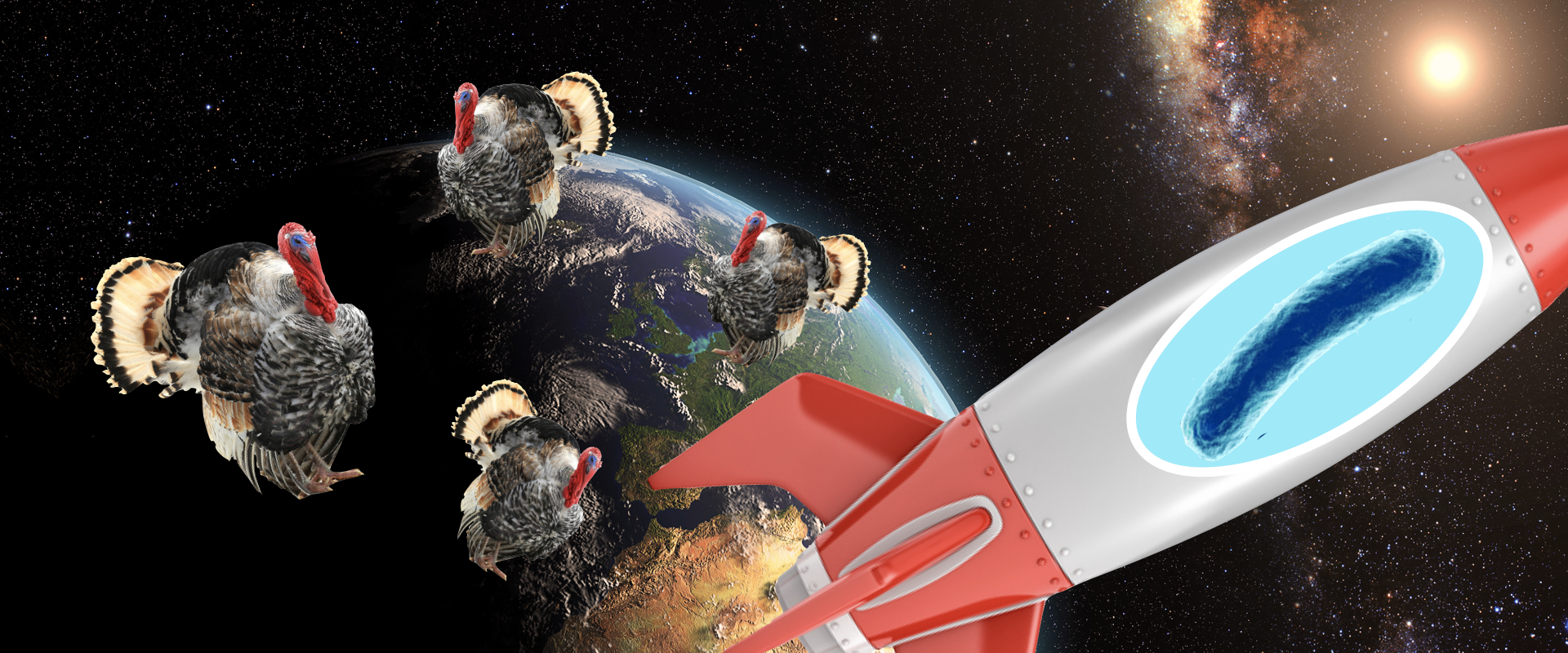An Ignoble Truth
This week, UC Berkeley picked up two new Nobel Prizes—or did they?
On Monday, immunologist and former director of UC Berkeley’s Cancer Research Laboratory, James P. Allison was awarded the Nobel Prize in Physiology or Medicine for his work in cancer immunotherapy. And on Wednesday, former Berkeley Ph.D. student Frances Arnold received the Nobel Prize in Chemistry for her directed evolution of enzymes for use in biotechnology.
Going into the week, Cal boasted 23 Nobels. Now they have 25, right?
Not so fast. As it turns out, Cal has a very specific policy on how to count Nobelists, and in this case, neither Allison nor Arnold made the cut. As Gretchen Kell, Director of Special Projects Outreach at Berkeley News, explained, every university does it differently and “that’s how it’s always been.”
At Berkeley, a Nobelist is claimed by the university under the following conditions: If the recipient a) won the prize while at Cal (regardless of where they did the research) and is a current faculty member; b) is on the faculty at the time of their death (regardless of where they did the research); c) won the prize while on faculty, and then moved elsewhere but remained on faculty as emeritus (very rare); or d) won the prize elsewhere but is currently at Cal.
Under these rules, Berkeley’s Nobel count can not only go up, it can go down as well. In 1949, the count rose when Wendell Stanley, who was awarded the Nobel Prize in Chemistry three years earlier for his work at Rockefeller University, came to work at Berkeley. Later in 2013, the count dropped from 22 to 21 when Steve Chu, winner of the 1997 Nobel Prize in Physics, left for Stanford (harsh!), taking his prize with him. Meanwhile, this year’s winner, Dr. Allison, who completed his prize-winning research at Berkeley but has since moved to the University of Texas, doesn’t (officially) count at all.
All of which is to say, it seems kind of crazy that one of the most selective prizes in the world has an utterly unregulated counting system, with some prizes likely claimed by two or more universities. And most institutions boast more prize winners than are listed on the official website of the Nobel Foundation. Berkeley itself claims 23, while Nobelprize.org only lists 18 (or 19 if you include literature).
Still, ask Wikipedia (which counts Nobelists with any affiliation to an institution) and Berkeley ranks third, behind Harvard and Cambridge, with 104.
We’ll take it.
Birds of A Feather Flock…to Berkeley
It’s Thanksgiving all year round in Berkeley, where wild turkeys have become a local staple, err, nuisance. Introduced to California in the late 1800s, these non-native birds have since thumbed their beaks at the original hunters and made Berkeley their stomping ground. According to Berkeley Professor of Conservation Biology Steven Beissinger, in the last decade these turkeys have experienced a population explosion and are more frequently spotted around campus and in busy urban areas.
But this year, some local experts have noticed a spike in the number of birds. Including so-called “turkey expert” and emeritus professor of environmental sciences at Berkeley, Reginald Barrett.
“There’s something going on this year,” Barrett told Berkeleyside. “There’s a heck of a lot of turkeys around.”
Video courtesy of Berkeleyside
Dressed for Success
While the turkeys continue to infiltrate the city, some anaerobic bacteria may be making the trip of a lifetime: to space.
Led by co-authors Peidong Yang and Omar Yaghi, a team of Berkeley chemists have used Yaghi’s groundbreaking metal-organic framework, or MOF, to make microscopic mesh “spacesuits” for space-traveling bacteria. These suits wrap around the organisms to form a “soft cloak that expands as the bacteria grow and split.” But, unlike the traditional suits worn by human astronauts, these MOF suits are specially designed to capture CO2 and light for use in basic metabolic processes and, importantly, they keep the oxygen out rather than in.
“We are using our biohybrid to fix CO2 to make fuels, pharmaceuticals and chemicals, and also nitrogen fixation to make fertilizer,” Yang told Berkeley News. “If Matt Damon wants to grow potatoes on Mars, he needs fertilizer.”
Chill Pill
Last Sunday, Governor Jerry Brown vetoed a bill that sought to provide abortion pills at health centers across California’s public universities. In his statement, Brown argued that “this bill is not necessary” because the services are already “widely available” to students at off-campus clinics.
The bill originated as a grassroots campaign at Berkeley, under the pen of recent-grad Adiba Khan who, during her time at Cal, petitioned the Tang Center to provide abortion services for students. While the University of California refrained from taking an official position, a spokesperson at the UC Office of the President expressed concerns that the bill didn’t provide the necessary funding to support its proposed services.
Meanwhile Khan, co-founder of Berkeley Students United for Reproductive Justice, is frustrated by the decision.
“This week we watched while powerful institutions, and specifically the white men who run them, repeatedly denigrated and ignored the lived experiences of women’s sexual assault in favor of protecting their own power,” she said in a an emailed statement to Mother Jones. “[Gov. Jerry Brown] completely discounted the burden that travel, time, and additional costs can impose on students.”
Not All’s Fair in Love and Law
Yesterday, as the likelihood of Brett Kavanaugh’s appointment loomed ever nearer, a public letter signed by some 1,700 law professors, including 36 Berkeley Law faculty members, was presented to the Senate and published as an op-ed in the New York Times. Referring to last week’s senate hearings, the professors called into question Kavanaugh’s “impartiality and judicial temperament,” criticizing him for being overly aggressive and responding to questions in an “intemperate, inflammatory and partial manner.”
For his part, Berkeley Law Dean Erwin Chemerinsky told Berkeley News that he signed the letter “without hesitation.” Calling this a “watershed moment,” Chemerinsky continued, “I think that if Judge Kavanaugh is confirmed, there will always be a cloud over his confirmation, and I think it will tarnish the Supreme Court.”
On the other side of the aisle, John Yoo, an ultra-conservative and recent defender of Kavanaugh’s, published a Berkeley Blog demanding fairness from senators.
“The Senate should demonstrate its fitness to perform its constitutional duty of advice and consent by enforcing basic standards of justice and fairness,” he wrote. “The Judiciary Committee should be fair to Ford and Ramirez. It must be no less fair to Kavanaugh.”
Hack to the Future
It’s big news in the cybersecurity world after Bloomberg Businessweek published a major story claiming that, in 2015, China infiltrated almost 30 major U.S. companies, including Apple and Amazon. Information from 17 anonymous sources, including current and former national security advisors and senior corporate officials, suggests that Chinese military spies used teeny tiny chips to hack into companies’ hardware.
According to Bloomberg reporters Michael Riley and Jordan Robertson (a graduate of the Berkeley Graduate School of Journalism), a San Jose-based company called Supermicro unknowingly served as the entry point for the cyber attack. By implanting the chips directly into the motherboards, the Chinese military was apparently able to smuggle its own code into, and private data out of, Supermicro’s commercially sold servers.
If true, this constitutes a massive breach of security. And one that’s unprecedented for a company like Apple which prides itself on being nearly impenetrable.
So far Apple and Amazon have both unequivocally denied the claims.


















